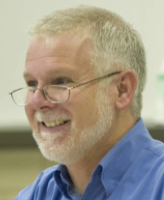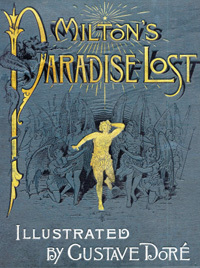To experience the full power of the 17th-century English masterpiece “Paradise Lost,” Notre Dame students and faculty gathered recently in O’Shaughnessy Hall to read John Milton’s 10,000-line poem aloud in one sitting.
Over the course of 10 hours, readers moved from heaven to hell to the Garden of Eden, taking on the parts of God, Satan, Adam and Eve, and a host of angels.

“Great poetry is meant to be read aloud and to be heard, and ‘Paradise Lost’ is arguably the greatest poem in English—a work of extraordinary brilliance and power,” says Stephen Fallon, a Program of Liberal Studies and Department of English professor who recently was named the Milton Society of America’s 2011 Honored Scholar.
“If you don’t speak and hear the lines, you miss much of the beauty. Taking in the whole poem at one sitting is also the best way to appreciate Milton’s architectural mastery and his subtle control of theme, image, and sound across thousands of lines of poetry,” says Fallon, the Rev. John J. Cavanaugh, C.S.C., Professor of the Humanities.
Participants took turns reading aloud verse paragraphs of the poem in an informal reading circle. Students and faculty who chose to participate were encouraged to stay for the whole marathon, but others came and went as their schedules allowed.
The first all-day reading of “Paradise Lost” at Notre Dame in nearly 15 years aimed to help illuminate Milton’s poetic genius, Fallon says.
“The experience of reading and hearing the whole poem aloud reveals the riches of Milton’s epic line by line and between the lines,” Fallon says. “Subtle echoes, parallels and contrasts become more audible when lifted from the page. The aural experience highlights the kinetic energy of the verse.
“It all is exhausting—and exhilarating,” he adds. “No one leaves the reading unchanged.”
Originally published by at al.nd.edu on March 30, 2011.